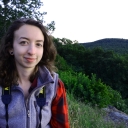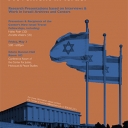
App State’s Dr. Baker Perry to be featured in National Geographic livestream June 13
Jun 12, 2019
As part of National Geographic’s three-day Explorers Festival, Appalachian State University’s Dr. Baker Perry will talk as part of a livestreamed ...

Kara Snow shows how getting a head start in research pays off
Jun 10, 2019
Honors first year student Kara Snow from Raleigh, NC, has been selected as a North Carolina GlaxoSmithKline Foundation Women in Science Scholar. ...

Dr. Alexandra Sterling-Hellenbrand awarded Fulbright to teach abroad in spring 2020
May 17, 2019
Through the Fulbright Scholar Program, Dr. Alexandra Sterling-Hellenbrand, professor of German and global studies in the Department of Langu...

Appalachian awarded funding for second STARTALK Program — an immersion in Chinese language, culture
May 16, 2019
For the second consecutive year, high school students of the High Country will have the opportunity to embark on a virtual journey to Beijing and lear...

Appalachian alumna wins NSF Fellowship: Support for graduate-level global study
May 9, 2019
Appalachian State University alumna, Caroline Noel ’13 has been awarded a grant from the National Science Foundation (NSF) Graduate Research Fellows...

Appalachian’s Department of History faculty member to return to Oxford as Visiting Research Fellow
May 8, 2019
Dr. Michael J. Turner, the Roy Carroll Distinguished Professor of British History at Appalachian State University, will be spending the academic year ...

National search yields Dr. Ece Karatan as Appalachian’s vice provost for research
May 3, 2019
After a national search for Appalachian State University’s vice provost for research, Dr. Ece Karatan, who has served in the interim capacity of the...

Student recipients of Israel travel grants will present research at Greensboro Jewish Federation and at Appalachian
Apr 30, 2019
In March 2019, five Appalachian undergraduate students (with a minor in Judaic, Holocaust and Peace Studies) became the first recipients of the C...

Celebration of Student Research and Creative Endeavors Winners 2019
Apr 30, 2019
This Celebration showcases meaningful research in all disciplines by students at Appalachian, with the top three posters in both the undergraduate and...

Dr. Mark Spond assesses condition of agricultural parcels along Blue Ridge Parkway using NPS funding
Apr 15, 2019
Thanks to $21,820 in funding from the National Park Service (NPS), Dr. Mark Spond, Appalachian State University’s liaison to the NPS, has compl...